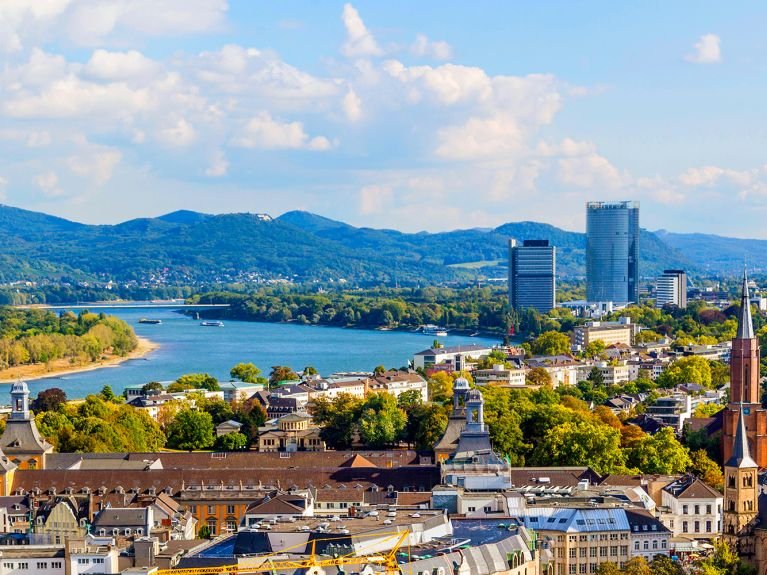Nestled along the banks of the Rhine River, Bonn is a vibrant city with a rich history and a cosmopolitan atmosphere. It served as the capital of West Germany from 1949 to 1990, and its legacy as a center of political and diplomatic power is still evident today. But Bonn is also a city of culture, with a thriving arts scene, numerous museums, and a UNESCO World Heritage Site. And for those seeking outdoor recreation, Bonn is surrounded by stunning natural beauty, with forests, vineyards, and the Rhine River itself providing ample opportunities for hiking, biking, and water sports.
Bonn’s history dates back to Roman times, when it was known as Castra Bonnensia. The city was destroyed by the Huns in the 5th century, but it was rebuilt in the 8th century by the Franks. In the Middle Ages, Bonn became an important center of trade and commerce, and it was granted city rights in 1288.
Electoral Palace in Bonn, Germany
Bonn’s history as a political center began in the 16th century, when it became the residence of the Electors of Cologne. In 1795, the city was occupied by French troops, and it remained under French rule until 1815. After the Congress of Vienna, Bonn was awarded to Prussia, and it became the capital of the Prussian Rhine Province
In 1871, Bonn became part of the German Empire. During World War II, the city was heavily damaged by Allied bombing. However, it was quickly rebuilt after the war, and it became the capital of West Germany in 1949.
Bonn remained the capital of West Germany until German reunification in 1990. After reunification, Berlin became the capital of the united Germany, but Bonn retained its status as a federal city.

